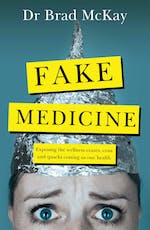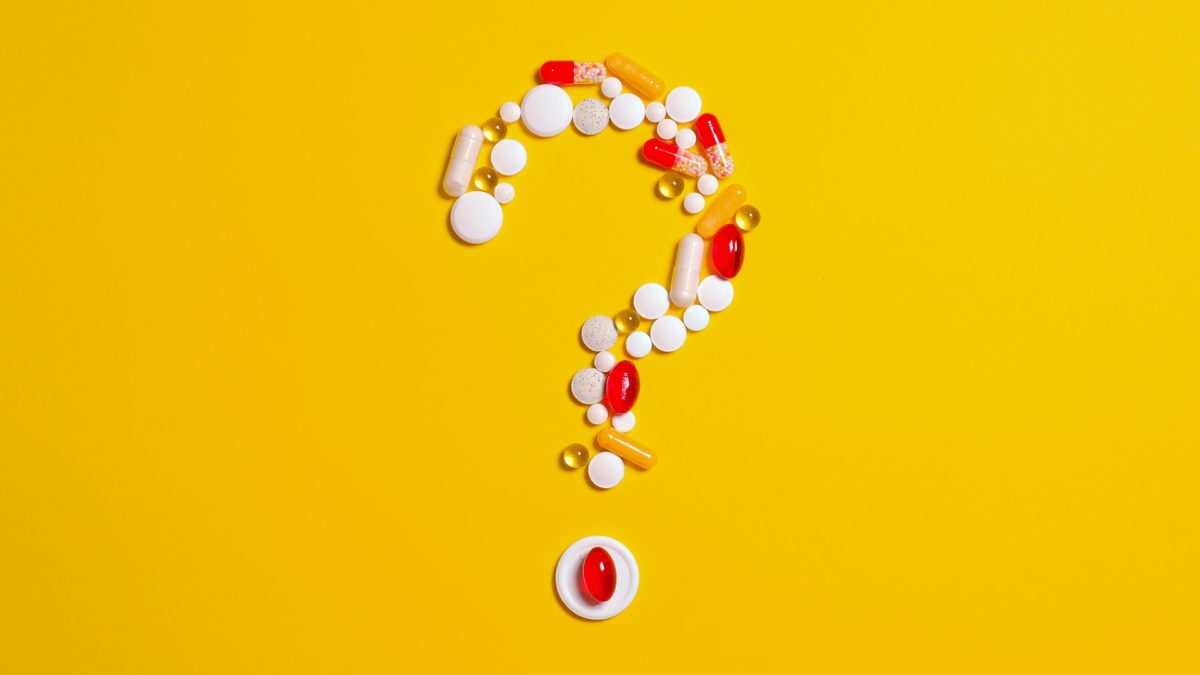Vitamins are “vital” for our bodies to work effectively. We can’t produce them ourselves, so we need a steady supply from an external source, our food. So you would think your child needs multivitamins for good health right?
We now have a list of 13 vitamins essential for human life: vitamin A, B (eight of them), C, D, E and K.
We haven’t stopped pumping them into ourselves since they were discovered. But whether you’re taking vitamin tablets, capsules, injections or attending a fashionable wellness clinic for an intravenous infusion, they probably won’t do you any good if you don’t have a deficiency.
Deficiencies caused by an inadequate diet are rare in Australia because we generally have access to healthy food. When your vitamin levels are within an appropriate range, you’ll hit that sweet spot where your metabolic processes are working like a well-oiled machine. But if your body becomes saturated with an abnormally high concentration of vitamins, you’ll overshoot—adding more oil to a well-oiled machine doesn’t make it go any faster.
B group vitamins and vitamin C are water-soluble, which means that once your body has used the vitamins it needs, any excess is filtered through your kidneys and eliminated in your urine. Your body isn’t able to store them for long and you need a steady supply trickling in through your diet; however, they’re generally considered to be safe, even at high doses.
Vitamins A, D, E and K are fat-soluble, which means your body can store a supply within your fat cells and drip-feed it back into your system when necessary. You can survive for long periods of time without needing a regular dose of these vitamins in your diet, but excessive amounts build up and become toxic. Vitamin toxicity can cause liver failure, loss of vision and even death—so more isn’t always better.
If you’re in one of these four groups, you need vitamin supplements

People living with conditions like inflammatory bowel disease, short gut syndrome and chronic diarrhoea might not absorb enough nutrients through their intestinal wall, requiring regular top ups. Also, some prescription medications will decrease the amount of available vitamins, for example Methotrexate (an immunosuppressant) requires regular supplementation of vitamin B9 (folic acid).
Pregnancy places a huge nutritional demand on the body, so supplementation is generally recommended. Neural tube defects (problems with the spinal cord developing) can be minimised by taking folic acid for a few months prior to getting pregnant and throughout the first and second trimesters. Extreme morning sickness during pregnancy (hyperemesis gravidarum) can cause significant vitamin deficiencies, and multivitamin supplements—especially vitamin B6 (pyridoxine) and vitamin B9—are recommended.
Your gut may not absorb vitamins very well in your senior years, but you can tell if you’re deficient by having a simple blood test. The vitamins most likely to be low in this situation are vitamin B12 and vitamin D.
Rare genetic conditions can cause problems with absorption and transportation of vitamins around the body, and these require specialised care. There are some rare forms of epilepsy where children can benefit from large doses of vitamin B6, but this needs to be administered under close supervision of a paediatrician.
Unless you fall into one of these specific categories, you probably won’t benefit from taking vitamins.
Dealing with a fussy eater and not sure if your child is actually consuming enough vitamins? GP Simone Kooke has the answers in the video below:
The truth behind why you think your child “needs” multivitamins
Associate Professor Ken Harvey spent many years of his career as a public health physician examining not only the scientific evidence behind using supplements, but also looking at their promotion, regulation and use in this country. He told me, “There are far more beneficial phytonutrients in a healthy diet than in any multivitamin/mineral pill.”
Yet more than a third of Australians take dietary supplements every day, and about two-thirds of Australians take supplements occasionally.
“The usage of these vitamins and supplements is out of proportion to the evidence to support them,” Ken told Jenny Brockie on the SBS current affairs program Insight in March 2019.
I asked Ken why vitamins and supplements are so popular in Australia and he told me it is “a triumph of celebrity endorsement and hype over science. If you look at the advertising, which is enormous, that has an effect.”
In Australia, companies selling over-the-counter health products must register the item with the TGA via an online form. They are asked to supply information about their product and pay a fee to the TGA, but it’s not a requirement for the product itself to be tested before it goes onto the shelf for sale. The TGA relies on companies to tell the truth and monitor their own products, but this self-regulating system doesn’t offer much assurance that the product is safe, will effectively treat your health problem or even that you’re going to receive the ingredients written on the box.
Relying on these companies to do the right thing through a trust-based self-regulatory system seems outrageous. The TGA might do a great job when it comes to regulating prescription medications, but over-the-counter products regularly make it onto the shelves even if their health claims are misleading or deceptive.
John Skerritt, the head of the TGA, shared a studio with Ken Harvey on that episode of Insight. He was keen to point out that the TGA performs post-marketing surveillance, where products have their health claims assessed—but this is only conducted after the products have made it onto the shelves.
John tried to be reassuring, explaining that every year about 11,000 new products start being sold over the counter in Australia and post-marketing surveillance is performed on a few hundred of them. This is really a phenomenal statement to make—it stopped me in my tracks. Sell first. Ask questions later. Sometimes.
John continued by saying, “We don’t check [the evidence] for every medicine because resources simply don’t allow it, so we do a mixture of targeted and random reviews.”
Ken expressed on Insight that testing only some of the products reaching Australian shelves wasn’t good enough. He also noted that 80 per cent of the products chosen for surveillance failed the test because companies didn’t have evidence to support the health claims made.
In response to this criticism, John replied “What’s most important, however, is safety, and the products can only contain ingredients that are shown to be safe and they have to be produced within a medicines-grade facility. Australia’s got the strictest safety requirements in the world.”
It’s great that our regulator has a primary focus on safety and on providing high-quality ingredients, but products should also deliver the benefits they promise.
If the TGA allows Australians to buy high-quality, safe nothingness, then they are missing the point. At the end of the day, are these vitamins and supplements actually effective and giving people benefit, or are people just wasting their money on products that don’t do anything, and forgoing products that do?
Our consumption of vitamins, minerals and supplements is driven by clever marketing strategies rather than scientific evidence. We’re given the impression that if we feel stressed, start to get crook or want an energy boost, then a handful of vitamins will help us out. Eating too much junk food can make us feel guilty, but instead of improving our diet we appease our guilt by topping up with supplements. They’re seen as an insurance policy, but they can distract us from addressing our original health problems and poor diet.
In 2020 Australians spent over $5 billion on complementary and alternative medicine products. This money isn’t being spent wisely unless the intention is to support the profits of supplement companies.
Our healthcare system could do with an extra $5 billion each year, but most of this money is going straight down the toilet.

Extract from Fake Medicine, by Dr Brad McKay.
How helpful was this article?
Click on a star to rate it!
5 / 5. 2
Be the first to rate this post!


